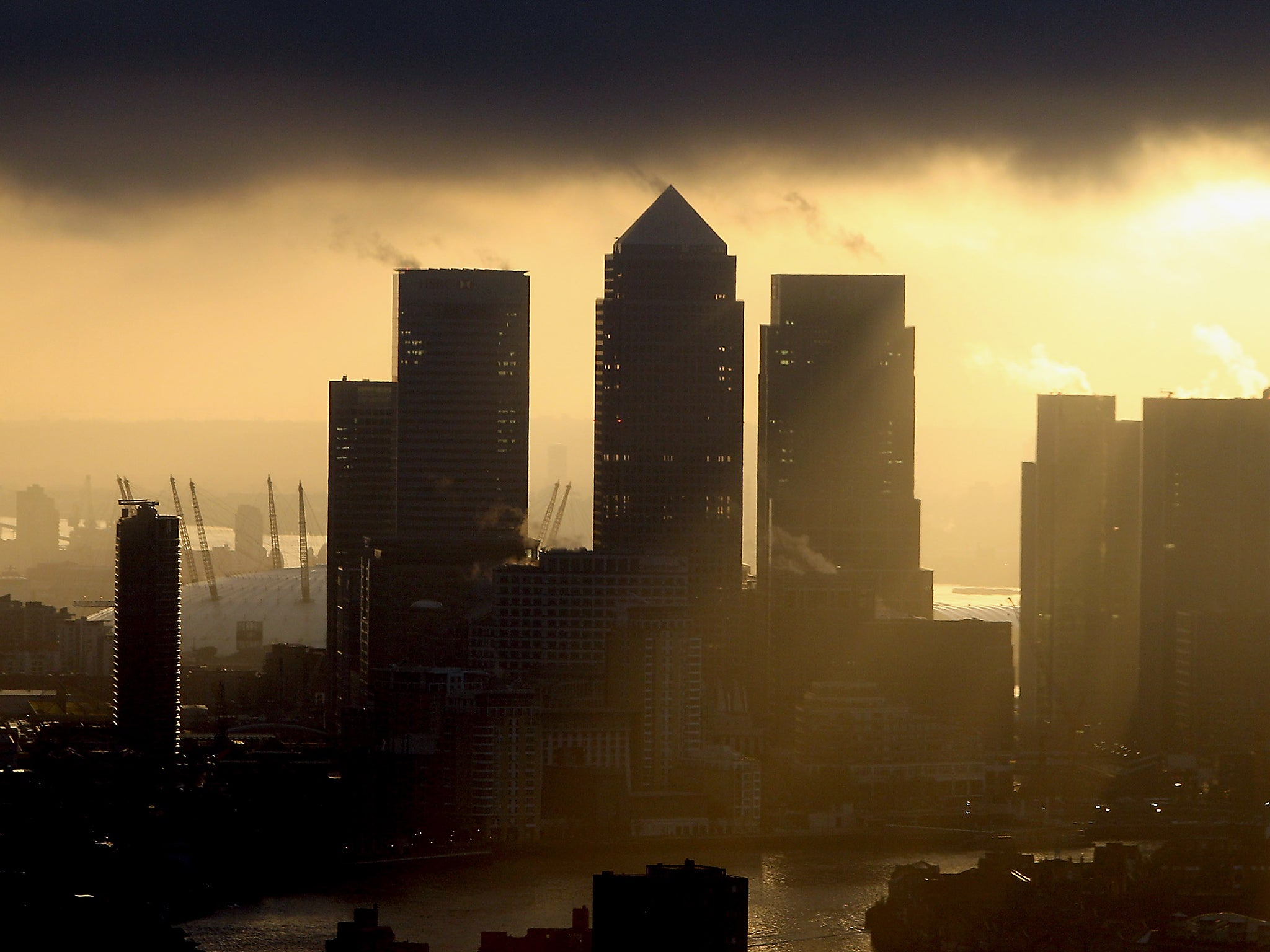Brexit: IMF downgrades UK's economic growth forecast following weaker-than-expected performance
The UK economy grew by just 0.2% in the first quarter of 2017, making it the slowest-growing advanced economy in the world

Your support helps us to tell the story
From reproductive rights to climate change to Big Tech, The Independent is on the ground when the story is developing. Whether it's investigating the financials of Elon Musk's pro-Trump PAC or producing our latest documentary, 'The A Word', which shines a light on the American women fighting for reproductive rights, we know how important it is to parse out the facts from the messaging.
At such a critical moment in US history, we need reporters on the ground. Your donation allows us to keep sending journalists to speak to both sides of the story.
The Independent is trusted by Americans across the entire political spectrum. And unlike many other quality news outlets, we choose not to lock Americans out of our reporting and analysis with paywalls. We believe quality journalism should be available to everyone, paid for by those who can afford it.
Your support makes all the difference.The International Monetary Fund (IMF) has slashed its growth forecast for the UK, citing a slump in economic performance since last year’s vote to quit the EU.
In its widely watched World Economic Outlook, the Washington-headquartered organisation said that it now expects the UK economy to grow by 1.7 per cent this year compared to a previous forecast of 2 per cent. It kept its estimate for 2018 unchanged at 1.5 per cent.
The UK economy initially proved resilient in the aftermath of last June’s referendum, but in recent months – largely driven by a tumble in the value of the pound – inflation has spiked to close to 3 per cent squeezing real wages.
The economy grew by just 0.2 per cent in the first quarter of 2017, making it the slowest-growing advanced economy and representing a marked slowdown from the 0.7 per cent expansion seen in the final three months of 2016. June’s inconclusive general election appeared to dent consumer confidence further.
Last week, proefessional services firm PwC trimmed its forecast for economic expansion, anticipating growth of just 1.5 per cent in 2017 and 1.4 per cent in 2018 from 1.8 per cent growth last year.
And forecasts by the Centre for Economics and Business Research (Cebr) show that the UK economy will grow by just 1.3 per cent in 2017, a substantial downward revision from an earlier forecast of 1.7 per cent.
“It’s difficult to foresee substantial domestic or foreign investment in the UK given the uncertainty and existing overseas investors may reconsider their positions,” said Chris White, head of UK equities at Premier Asset Management, after Monday’s downgrade. “While this does not mean we are the new ‘sick man of Europe’, we should expect a more fallow period of economic growth over the next couple of years,” he added.
Second quarter GDP figures are due later this week.
The Treasury said that Monday’s IMF report underscores why it is “vitally important” for the UK to secure the “very best deal” on Brexit with EU. Prime Minister Theresa May has previously insisted that no deal is better than a bad deal when Britain quits the bloc. The IMF downgrade could also add weight to calls from businesses and lobby groups for a transitional agreement after March 2019.
Many of the biggest trade bodies in the UK have expressed deep concerns around Brexit and what it might mean for tariffs, trade and the free movement of people. Scores of firms, especially in the financial sector, have already committed to moving staff or shifting their European headquarters to the continent to ensure that they can provide a seamless service to clients in the aftermath of the split.
Earlier this year, Confederation of British Industry president Paul Drechsler said that Britain would face a “Pandora’s box of economic consequences” if it crashed out of the EU without a new trade deal in place.
Adam Marshall, director general of the British Chambers of Commerce, earlier this month called for “day-one certainty and stability on the rules and regulations they will face when the UK leaves the EU”.
"Continuity and equivalence are needed to prevent any disruption to British business, particularly in terms of our trade with partners and markets in Europe and beyond,” he said.
On Monday, however, the Treasury insisted the fundamentals of the UK economy are strong, with employment at a record high and the deficit down by three quarters since 2009. “This forecast underscores exactly why our plans to increase productivity and ensure we get the very best deal with the EU are vitally important,” a spokesman for the Treasury said. “We will continue to deliver greater prosperity and higher living standards for hard working people across the country.”
Separately on Monday, the IMF reduced its forecasts for US growth to 2.1 per cent for 2017 and 2018, marginally down from previous projections of 2.3 per cent and 2.5 per cent. It reversed previous expectations that President Donald Trump’s administration would implement stimulus measures that would bolster US growth, largely because no details of such plans have yet been made public.
It kept its growth forecasts for the overall world economy unchanged for both this year and next, at 3.5 per cent and 3.6 per cent respectively, and said that it now sees the eurozone growing at 1.9 per cent in 2017, up 0.2 percentage points from its April forecast.
It also edged its forecast for China higher. It now sees growth of 6.7 per cent in 2017, up 0.1 percentage point from April. The country’s growth, it said, would moderate in 2018 to 6.4 per cent.
Additional reporting by wires
Join our commenting forum
Join thought-provoking conversations, follow other Independent readers and see their replies
Comments